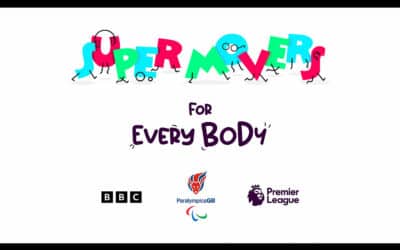Today the UK TV industry is in good health. The sector has recovered well following the extreme economic instability of 2008 to 2010, and has stabilised with steady growth, writes Richard Davis, the storyworld editor of multiplatform specialist, Bellyfeel. But when I look to the future, I see uncertain times ahead. The media market place is saturated with extra channels and additional networks, and audience attention is splintered between a multitude of different platforms and devices.
Audience behaviour is changing as newer forms of content become an important part of the TV programme experience and time shifted, on-demand viewing will start to take priority over live TV in personalised schedules. More and more people are realising they have control over how and when they watch programmes, and then there are the Digital Natives, future audiences born into a digital world who will consume media on their terms as it is all they know.
TV will not disappear in favour of newer platforms, and programmes will continue to be the most important part of the viewing experience. Broadcasters and distributors are reacting to these business and cultural challenges but they do not have definitive solutions to maintaining their current audiences or growing them via new devices and platforms. Plus their priority is their own business stability.
Tell Me Something I Don’t Know
Even in this confusing multiplatform, multi-screen, multi-channel and multi-device world, we all still love a good story. Today’s audiences will follow a good story wherever it leads them. But they now want to receive their media diet when and where they want, and have the technology in their hands to do this. They are constantly looking for new experiences but are still faithful to the stories and characters they already love.
Multiplatform content that surrounds existing TV programmes, and engages audiences in new viewing contexts such as online, mobile, social and interactive, is now a crucial part of the story experience for those audiences AND a valuable part of the original IP for the production company.
Multiplatform Success

However, many TV producers still have their head in the sand. Yes, it is hard to compete with All3Media but you had better start somewhere – and soon. I believe we need to apply the same level of control and attention to detail to multiplatform content for new platforms and devices as we give to the actual broadcast programme. It is also vital that multiplatform content development begins at the development phase and is considered as an ‘organic’ part of the project, not as an ‘add-on’ delivered at a later stage.
There is often money and control left on the table by TV producers in deals with TV broadcasters but probably more important, are the new business opportunities emerging outside the broadcast bastions. New media giants like Google, Facebook and Amazon have all built content and storytelling into their future strategies.
Multiplatform Fail
It is a big mistake for TV producers big and small not to be dealing with multiplatform content NOW! But it does not appear to be happening. In recent research, we heard these ‘why not’ reasons;
“It’s confusing.”
“It’s not our area of expertise.”
“Broadcasters control the strategy.”
“New technology = new problems.”
“There’s not enough money in it.”
(These responses came from producers and TV production companies who are commissioned by UK broadcasters including BBC, Sky and Channel 4.)
Now Is The Time
All TV Producers need to start developing multiplatform strategies, techniques and content. The skills needed to create compelling multiplatform ideas are not that different to the skills needed to create excellent TV programmes.
It is still all about the story – the main difference is that now it is all about the audience too!
Do not forget the audience….












